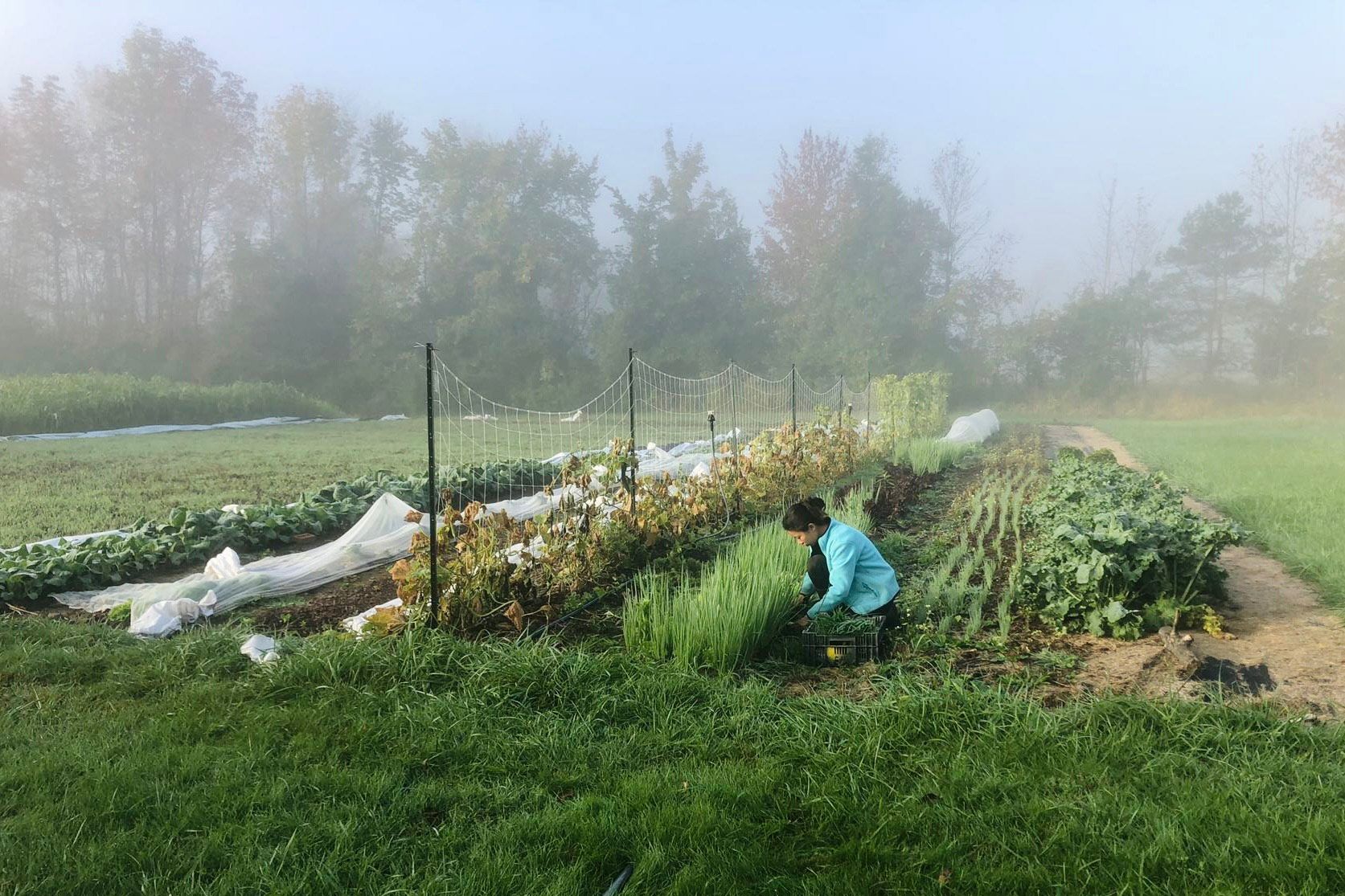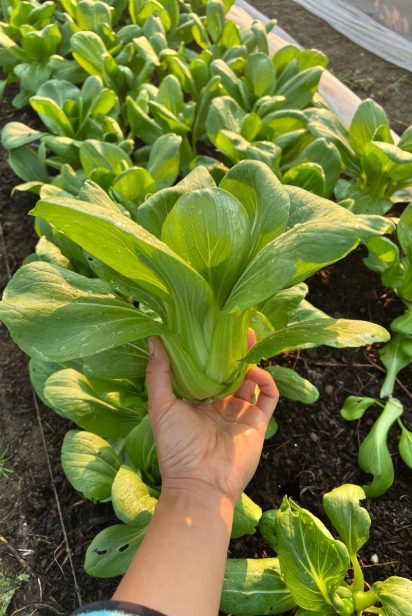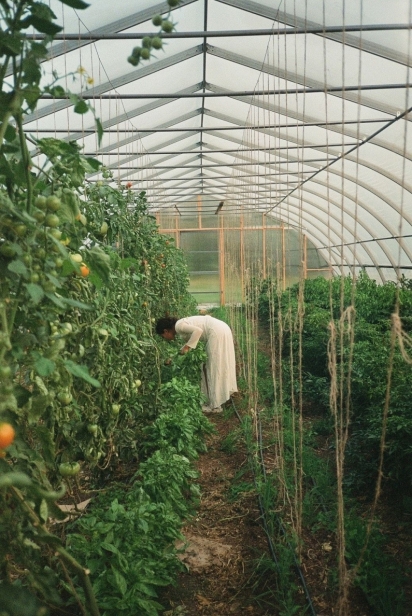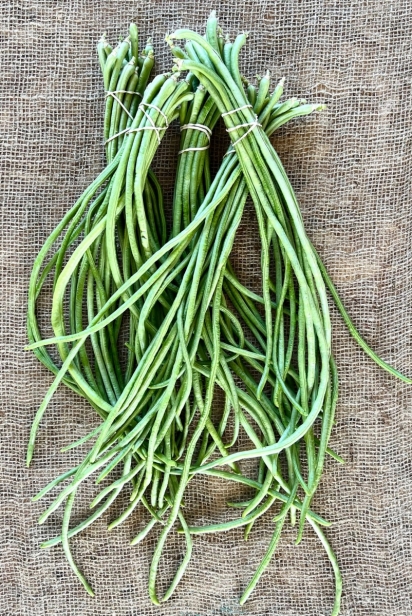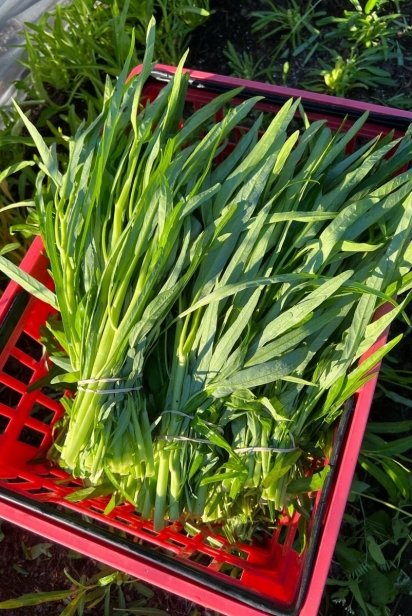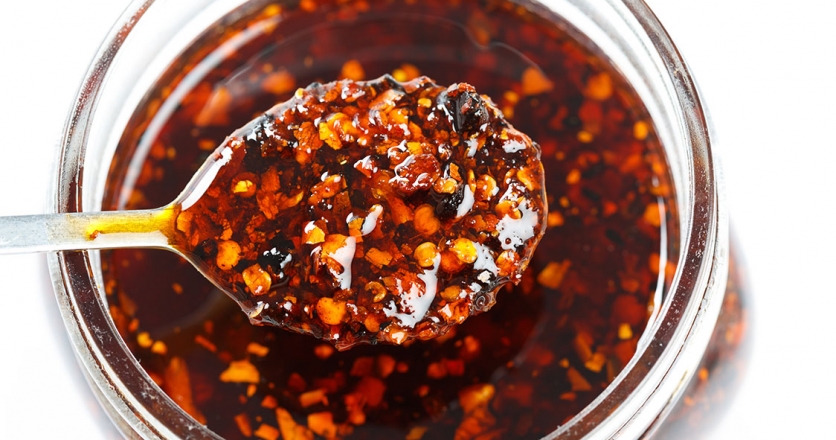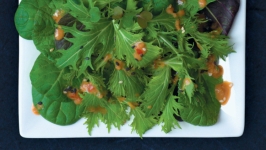Bao Bao, Bok Choy and Belonging
Nestled just outside the town of Perth, Ont., Bao Bao Farm is a small but mighty operation run by 28-year-old Shini Ko. With a degree in engineering and a background in software development, Ko never imagined herself becoming a full-time farmer. But, after stumbling upon a mentor at Sundance Harvest in Toronto, she realized there was a gap in the local agriculture scene that she could fill. Inspired by the lack of East Asian representation in small-scale farming, Ko set out to provide fresh, organic and ecologically grown Asian veggies to her community.
“Growing food that I grew up eating is a means for me to reconnect to my culture and heritage," Ko says. "It’s a form of food sovereignty. I hope to invoke a sense of belonging and connection for Asian Canadians who eat my veggies as well.”
Bao Bao Farm has become a hit among the Asian Canadian community, with customers coming from all over to sample Ko's unique-to-the-region offerings.
"I often have Asian customers tell me that they’ve been looking for a farm like this," she says. "That’s what keeps me going. A lot of people are very curious about my offerings as they’ve never seen some of the veggies before. Yes, my cucumbers look different, but they’ve become very popular."
Ko has even created a cooking guide to share the best ways to prepare her veggies. "I got a lot of questions on how to cook certain vegetables," she says. "I curated recipes that strike a good balance of authenticity and ease of cooking."
Ko's passion for food and her heritage is evident in everything she grows, and her customers appreciate the unique and culturally relevant offerings she provides.
For Ko, farming is not just a job, but a way of life. "Farming is super demanding and very fulfilling work," she says. "Almost every day there’s a new challenge. I underestimated how physically demanding it is, especially during the height of the season. I made a lot of mistakes and a lot of things didn’t go as I wished last year, but I try not to let that get me down. It was my first year and my intention was to learn. I definitely learned a lot."
Despite the challenges, Ko remains committed to her farm and the community it serves.
"My intention behind the farm hasn’t changed, but I’m always learning and adapting, balancing my hopes and dreams with the practical realities of running a business."
Looking to the future, Ko has big plans for Bao Bao Farms. She hopes to expand her offerings by adding freshcut flowers to her lineup and plans to collaborate with chefs to create a unique culinary experience that honours Asian culture.
"I’d love to start selling on my online store and offering delivery or local pickup," she says. "I think it will make my veggies more accessible. I also wish to hire employees to work on the farm as the farm scales up. I hope to be able to host on-farm events that bring people together and connect to the land where the food is grown."
Despite her humble beginnings and lack of formal training in agriculture, Ko has built a thriving farm that has become a beloved part of her community.
"Food is about community and culture," she says. "By sharing my experience online, I hope to inspire a new generation of growers across the continent to start their own local food movement, as well as educate curious eaters about how food is grown."
With her commitment to sustainability, community and celebrating Asian culture, Ko and Bao Bao Farms — which means precious or treasure in Chinese — are sure to be treasured in the local agriculture scene for years to come.
Bao Bao Farm
baobaofarm.ca | @baobao.farm
Find Bao Bao Farm at Parkdale Night Market and Perth Farmers' Market.
Chili oil
Recipe by Bao Bao Farm
1 cup finely chopped fresh red chili peppers
1 cup finely chopped green Sichuan peppers
8 cloves garlic, minced
1 bunch green onions
1 bunch cilantro
1 2-inch piece of sliced ginger
2 cups vegetable oil
1 tablespoon salt
1 tablespoon ground Sichuan peppercorn (optional)
Heat oil in a wok or a skillet over low-medium heat. Add green onions, cilantro and ginger. Fry the aromatics until they are fragrant, then remove from the oil and discard.
Carefully add the chili peppers, garlic and salt to the oil. Keep the heat low to prevent burning. You will see the peppers sizzling and small bubbles rising. Stir occasionally and cook the peppers until the moisture evaporates. You will know it’s done when the sizzling stops.
Add in the ground Sichuan peppercorn, if using, and fry for another minute.
Remove from the heat and store in an air-tight container when cooled. Refrigerate after opening. It will last up to six months after opening or up to one year unopened.


